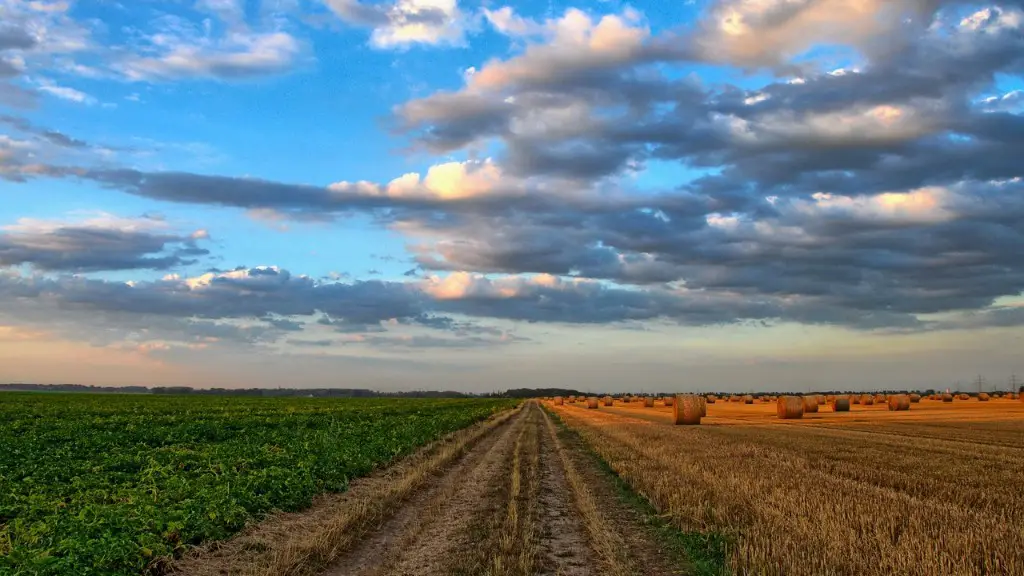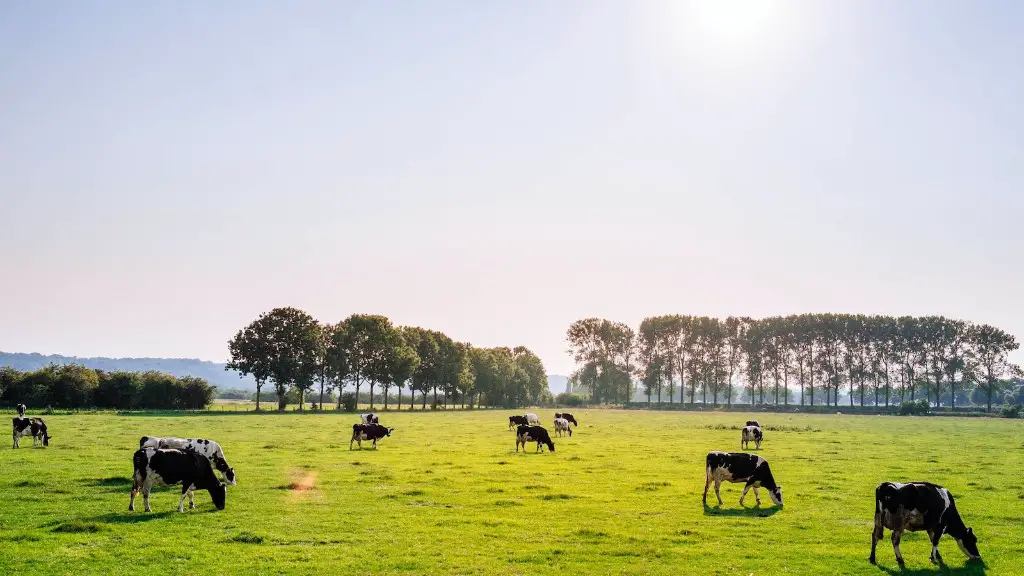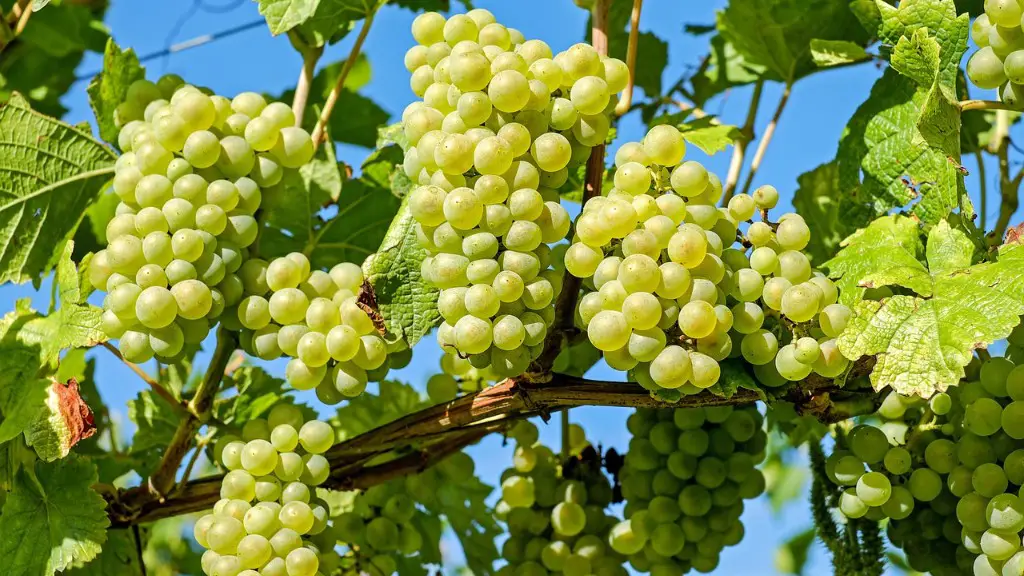In recent years, there has been a debate over which type of agriculture is better for the environment and for human health – organic or conventional. Organic agriculture is defined as “a system of production that maintains and enhances the health of soils, ecosystems and people.” This type of agriculture uses organic materials and focuses on crop rotation, composting, and biological pest control. Conventional agriculture, on the other hand, uses synthetic fertilizers, pesticides, and genetic modification.
So, what is the difference between these two types of agriculture? For one, organic agriculture is better for the environment. This is because it reduces pollution, conserves water, and doesn’t rely on harmful pesticides and fertilizers. Additionally, organic agriculture is better for human health. This is because it doesn’t expose people to the harmful chemicals used in conventional agriculture.
Overall, organic agriculture is a more sustainable and health-conscious way of farming. However, it is important to remember that both organic and conventional agriculture have their pros and cons. It is up to the consumer to decide which type of agriculture they want to support.
The main difference between organic and conventional agriculture is that organic agriculture uses methods that are environmentally, friendly, while conventional agriculture uses methods that are more harmful to the environment.
What is the difference between organic and conventional products?
Organically grown produce has lower levels of pesticide residue compared to produce grown using conventional methods. The safety rules for the highest levels of residue allowed on conventional produce have changed, and in many cases, the levels have been lowered. This means that organic produce is safer to consume than conventional produce.
Conventional farming is a method of agriculture that uses synthetic chemicals and fertilizers to maximize the yield of a particular crop or set of crops. This method requires a significant amount of chemical and energy input and weakens the ecology of a landscape.
Why conventional farming is better than organic
Habitat destruction is the biggest threat to biodiversity, and organic farms are a huge part of that problem. They take up more land, use more water, and generate more pollution than conventional farms. So, we need to stop building more organic farms.
Organic agriculture is an environmentally friendly form of agriculture that uses no synthetic fertilizers or pesticides. Instead, organic farmers rely on natural methods to fertilize and control pests. This makes organic agriculture more sustainable and environmentally friendly than conventional agriculture.
What are the conventional practices of agriculture?
The uniform application of inputs in conventional farming often results in over and under applications of resources, as it fails to take into account the naturally inherent spatial heterogeneity of soil and crop conditions between and within fields. This can lead to decreased yields and increased inputs costs.
Organic foods have been shown to have lower levels of toxic metabolites, including heavy metals such as cadmium, and synthetic fertilizer and pesticide residues [10,17]. Consumption of organic foods may also reduce exposure to antibiotic-resistant bacteria [19]. These benefits are thought to be due to the fact that organic foods are produced without the use of synthetic pesticides and fertilizers, which can contaminate food with toxic chemicals. In addition, organic farms are typically managed in a way that promotes soil and water conservation, which can reduce the risk of contamination from agricultural runoff.
Is conventional agriculture more productive than organic?
However, organic farmers can come close to these levels by using more efficient irrigation systems, using natural compost, and carefully selecting the right seeds for their climate.
The main objective of conventional agriculture is to achieve the maximum possible yield from the land. This requires inputs of synthetic fertilizers and pesticides to artificially create favorable conditions for crops.
The three words that best define conventional agriculture are efficiency, uniformity, and maximization. Conventional farmers strive to be as efficient as possible in their production in order to maximize their yield. This often means using synthetic inputs to achieve more uniform growth and higher yields.
Organic farming is a type of agriculture that focuses on producing food in a way that is environmentally sustainable and humane. This means using organic materials and methods to produce food, rather than relying on synthetic pesticides and herbicides. Organic farmers also often use different methods of crop rotation and soil management to make sure that their crops are healthy and productive.
Conventional farming is a method of farming that uses traditional techniques and equipment. This type of farming typically relies on chemical inputs to increase yields and productivity. Conventional farming often uses genetically modified organisms (GMOs) and is sometimes referred to as industrial agriculture.
What are 3 benefits of organic farming over conventional farming?
Organic farming is much better for the environment than conventional agriculture. It causes less greenhouse gas emissions, soil erosion, and water pollution, and does not threaten human health with toxic pesticide residues.
Organic farming is a more sustainable and environmentally friendly way to produce food. The lack of pesticides and wider variety of plants helps to improve biodiversity and soil quality, while also reducing pollution from fertilizer and pesticide runoff.
What does organic and conventional farming have in common
Pesticides are an important part of both organic and conventional farming. Farmers use pesticides to protect their crops from bugs and disease. Soil health is also important to both types of farmers. Farmers use a variety of tools and practices to maintain soil and water health on their farms.
Organic farms tend to have more fertile soil, use less energy, and sequester more carbon. Research has shown that organic farms use 45 percent less energy, release 40 percent less carbon emissions, and foster 30 percent more biodiversity compared to conventional farming.
What are components of conventional agriculture?
There are some key differences between sustainable farming and conventional farming. Sustainable farming practices are designed to be more environmentally friendly and to have a smaller impact on the resources used. For example, sustainable farmers might use cover crops and crop rotation to improve soil health, while conventional farmers might use chemical fertilizers. Sustainable farmers might also use more labor-intensive methods such as hand-weeding, while conventional farmers might use more mechanical methods or herbicides. These differences can impact the bottom line for farmers, as sustainable methods can often be more expensive. But sustainable farming practices are becoming more popular as consumers become more aware of the environmental impact of their food choices.
Organic produce can be called organic if it’s certified to have grown on soil that had no prohibited substances applied for three years prior to harvest. Prohibited substances include most synthetic fertilizers and pesticides. Organic produce is grown without the use of these substances, and is therefore considered to be more environmentally friendly and healthier for both consumers and the planet.
Can people taste the difference between organic and conventional crops
There is no scientific evidence to support the claim that organic foods taste better than conventional foods. Most studies have shown that it is impossible to tell the difference between organic and conventional foods simply by tasting them.
Organic food has been gaining in popularity in recent years as people become more concerned about the food they are eating and where it comes from. However, there are also some disadvantages to eating organic food. One of the biggest disadvantages is the price. Organic food is usually more expensive than conventionally-grown food. This is because organic farmers do not use synthetic fertilizers or pesticides, and they often have smaller farms. This means that they have less food to sell and they have to charge more for it. Another downside to organic food is that it often spoils more quickly than conventional food. This is because it does not contain preservatives. Finally, organic food can sometimes be hard to find. If you live in a rural area, it may be difficult to find a store that sells organic food.
Conclusion
Organic agriculture is a type of farming that focuses on using natural processes, rather than artificial inputs, to grow crops and raise livestock. This includes things like using crop rotations and natural pest control methods. In contrast, conventional agriculture relies heavily on synthetic inputs like pesticides and fertilizers.
The main difference between organic and conventional agriculture is the way in which the crops are grown. Organic crops are grown without the use of synthetic pesticides or chemical fertilizers, while conventional crops are grown with the use of these chemicals.





